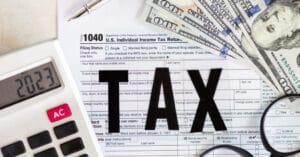Retail employment layoffs are “inevitable” following the budget.

According to a group of the largest retailers in the UK, job losses on the high street are “inevitable,” prices will increase, and stores will close due to budgetary tax increases and other growing costs. The Treasury is being urged to reevaluate some of the measures by Tesco, Amazon, Greggs, Next, and numerous other chains. On Tuesday, Andrew Bailey, the governor of the Bank of England, told the Treasury Committee that he had read the letter and that it was “right” to suggest that jobs would be impacted.
He added in his testimony to the committee that the Bank will be “gradual” in its interest rate reductions, stating that the budget’s increase in the employer national insurance levy could result in higher unemployment, poorer wage growth, or higher inflation.
The 81 signatories to the letter include major British retailers like John Lewis, Lidl, Marks & Spencer, Primark, Aldi, Asda, Boots, Currys, and Sainsbury’s, as well as trade associations Associated Independent Stores and the British Heart Foundation, a charity shop.
The government has defended the tax increases as essential to prevent public service losses, and trade unions have embraced the minimum wage increase, which will be especially beneficial for apprentices and younger workers. It was determined that the revisions would result in annual expenses of more than £7 billion and that it would “not be possible to absorb such significant cost increases over such a short timescale.”
Taxes and expenses

Employer NIC rates will increase from 13.8% to 15%, and the threshold will be lower than it is presently, at £5,000 rather than £9,100. This will cost British retailers £2.33 billion annually, according to the BRC.
A new packaging levy also goes into effect in October 2025. By shifting the cost of recycling from local governments to the corporations that use the packaging, the previous government introduced the extended producer responsibility (EPR) system. The BRC predicts that the new fee will cost the retail industry an additional £2 billion, even if smaller businesses are exempt.
According to the retailers ‘ letter, the government should postpone the implementation of the EPR and gradually implement the NI adjustments. The BRC estimates that business rates, a property-related tax, will cost retailers an extra £140 million annually after April of next year. However, 250,000 establishments are eligible for a 40% reduction. The government is urged to lower business rates. The BRC’s worries gained some support on Monday from Begbies Traynor’s business update. The consultancy projected that the NI reform and rising interest rates would result in more businesses experiencing financial difficulties requiring its insolvency guidance.
Mulberry reduces employment in a “rebuild” due to weak sales.

The head of Mulberry, a high-end retail brand, says he needs to “rebuild the business” after revenues fell by about a fifth during the previous six months. The Somerset-based design firm reported to shareholders that its group revenues for the six months ending September 28th dropped by 19% to £56.1 million.
It further stated that a “difficult trading environment and uncertain macroeconomic trends” were the reason for the problematic sales. Mulberry is one of many businesses severely impacted by the fall in global luxury purchasing. Its wholesale and franchise division saw a 46% decline in revenue to £5.4 million, primarily due to partners in Italy and Denmark cutting back on orders because of difficult circumstances.
In the meantime, “low consumer confidence” caused UK revenues to drop 14% to £31.3 million. Pre-tax losses for the company also increased to £15.7 million, up from £12.8 million in the previous year. Mike Ashley’s Frasers Group, which holds about 37% of the business, abandoned preparations for a £111 million buyout offer a month prior.
